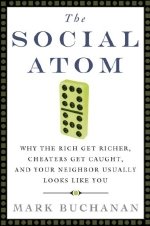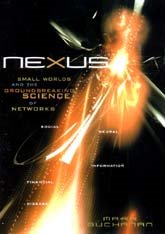The ever-active Glenn Greenwald cites yet another example of the sad failing of our media's "finest" to render poltical events in anything like a "fair and balanced" manner. As I tentatively suggested last week, our media figures could do a great service to our democracy -- not to mention to the standing of journalism itself --if they tried a bit harder to act as intelligent and independent minds in their own right, and to peer behind the themes and images given them by political figures and operatives, so as to help Americans know and understand the world, insofar as that might be possible. The Washington Post's Anne Kornblut clearly hasn't yet mastered the requisite skills, relatively simple though they may be. An excerpt from Tuesday night's Hardball:
KORNBLUT: It remains, especially in Democratic crowds, the number-one issue. There is no applause line that gets a bigger response when you're out with Senator Hillary Clinton, Barack Obama, John Edwards, than when they say the first thing I'm going to do is I'm going to start ending this war in Iraq.
Republican crowds are a little different. They still want to be supporting the troops.
Notice the logic, or rather the lack thereof. She might as well have said "Republicans are a little different, they still hold America in high esteem and do not want to dishonor the dead." Or, "Democrats want to start ending this war, but Republicans are a little different - they love their children and see hard work and responsibility as a good thing, not something to be ashamed of." Etc.
This is indeed a very crafty way to use, or misuse, language. "Republican crowds are a little different. They still want ..." sets us up to take whatever comes next as roughly the opposite of what Democrats want. The speaker then has free reign to say anything, knowing that the association is implicitly made.
I find it very hard to believe this is mere incompetence. Okay, speaking on the fly on television isn't easy, but a "political analyst" with any skill and experience ought to be able to avoid a juvenile error like this. It ought to be almost automatic; second nature. I cannot imagine myself, in a context more close to my own knowledge base, saying something like "Classical physics attibutes a precise position and velocity to a particle, such as an electron. Quantum physics is a little different. It views the world as something that can be explained, often in terms of elegant mathematical theory."
Indeed, I found it quite difficult even to construct that example, as my brain strongly demanded that I follow "It views..." with some statement about whether quantum theory attributes precise positions and velocities to particles. But someone reading could easily come away thinking that "classical physics" doesn't see the world as something that can be explained.
Alas, however, this kind of mushy and slippery thinking and speaking routinely passes as "analysis." Why even bother educating journalists? Greenwald summarized the point quite clearly, referring to the potentially useful role of "analysts":
One of the principal functions of political reporters ought to be to dissect and dispense with misleading political sloganeering, but instead, they fulfill the opposite function: they are the most enthusiastic and effective disseminators of these cliches.
...Instead, this sort of cheap sloganeering entirely engulfs the analysis itself and becomes the only way many political journalists can think and talk about political issues.




2 comments:
don't you think that it might be carefully crafted propaganda rather than lack of competence?
Be assured that media bias that is contrary to one's own political bias is both glaringly obvious and quite upsetting.
Media bias that matches one's own bias is surprisingly difficult to detect and easy to miss.
It is a LOT more pleasant to get one's news from a source whose biasis match one's own, and as such it makes good business sense for media to understand and cater to the biases of their customers.
Post a Comment